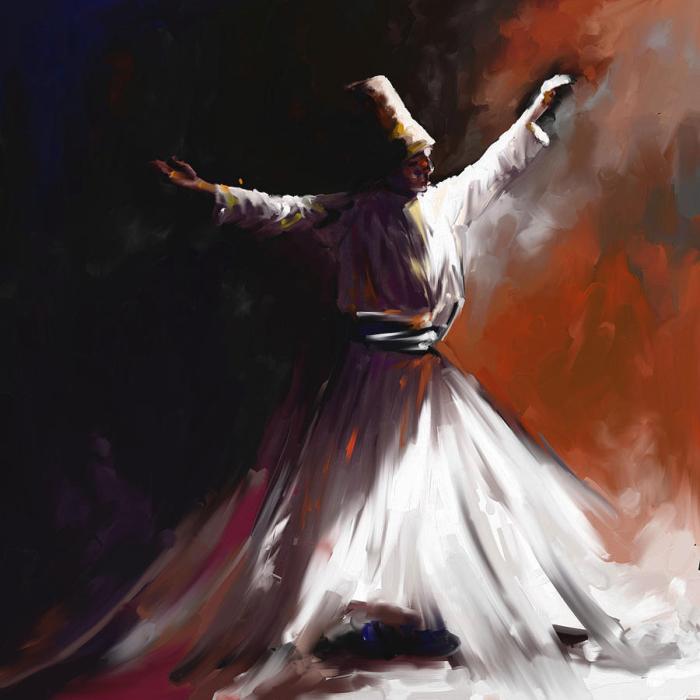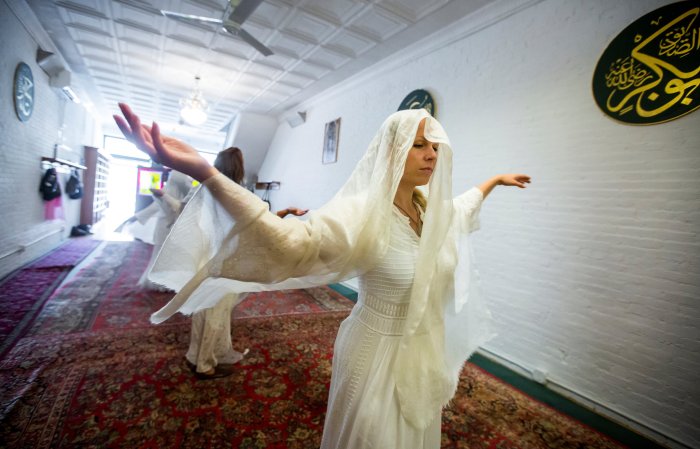One practicing a mystical form of Islam embarks on a profound spiritual journey that transcends the boundaries of conventional religious observance. This path, often referred to as Sufism, Shi’ism, or Ismailism, delves into the esoteric dimensions of Islam, seeking a direct and transformative connection with the divine.
Rooted in the historical origins of Islam, mystical practices have evolved over centuries, shaping the beliefs, practices, and cultural expressions of the Islamic world. From the early ascetics to the renowned Sufi masters, these mystics have left an enduring legacy that continues to inspire and guide seekers today.
Historical Context

Mystical Islam, also known as Sufism, has a rich and complex history that spans centuries and encompasses a diverse range of practices and beliefs.
The origins of mystical Islam can be traced back to the early days of Islam, when ascetics and mystics sought to deepen their connection with God through practices such as meditation, fasting, and seclusion.
Over time, these practices evolved into a distinct branch of Islam, with its own unique beliefs and practices. Key figures in the history of mystical Islam include Rumi, al-Ghazali, and Ibn Arabi.
Key Figures and Movements, One practicing a mystical form of islam
- Rumi (1207-1273): A Persian poet and Sufi mystic, Rumi is known for his beautiful and insightful poetry on love, spirituality, and the nature of God.
- Al-Ghazali (1058-1111): A Persian theologian and philosopher, al-Ghazali is considered one of the greatest thinkers in Islamic history. He wrote extensively on mysticism and the nature of the soul.
- Ibn Arabi (1165-1240): A Spanish Sufi mystic, Ibn Arabi is known for his vast and complex system of thought, which incorporates elements of Neoplatonism, Christianity, and Islam.
Beliefs and Practices: One Practicing A Mystical Form Of Islam

Mystical Islam is based on the belief that God is immanent in all things and that the goal of human life is to achieve union with God.
Mystics believe that this union can be achieved through a variety of practices, including meditation, dhikr (the repetition of God’s name), and other spiritual exercises.
Forms of Mystical Practice
- Sufism: Sufism is the most well-known form of mystical Islam. Sufis believe that the path to God is through love and devotion.
- Shi’ism: Shi’ism is a branch of Islam that emphasizes the importance of the family of the Prophet Muhammad. Shi’i mystics believe that the Imams, the descendants of the Prophet, are the only true guides to God.
- Ismailism: Ismailism is a branch of Shi’ism that believes that the seventh Imam, Ismail, was the true successor to the Prophet Muhammad. Ismaili mystics believe that the Imam is the only source of divine knowledge.
Influence on Islamic Culture
Mystical Islam has had a profound influence on Islamic culture. Sufi poetry, music, and art are all expressions of the mystical experience.
Mystical Islam has also played a significant role in the development of Islamic philosophy and theology. Many of the great Islamic philosophers, such as al-Farabi and Ibn Sina, were also mystics.
Role in Social and Political Life
- Sufi orders have played a significant role in providing social services, such as education and healthcare, in the Islamic world.
- Sufi mystics have also been involved in political movements, both for and against the established order.
- In some cases, Sufi orders have been used by governments to control the population.
Comparative Perspectives

Mystical Islam is similar to other mystical traditions in its emphasis on the importance of direct experience of God.
However, it is also unique in its emphasis on the importance of the Prophet Muhammad and the Quran.
Similarities and Differences
| Characteristic | Mystical Islam | Christianity | Buddhism | Hinduism |
|---|---|---|---|---|
| Emphasis on direct experience of God | Yes | Yes | Yes | Yes |
| Importance of a prophet or founder | Yes | Yes | No | Yes |
| Role of scripture | Important | Important | Important | Important |
FAQ Compilation
What are the key beliefs of mystical Islam?
Mystical Islam emphasizes the importance of love, devotion, and a direct personal experience of the divine. It seeks to transcend the limitations of formal religious rituals and focus on the cultivation of an inner spiritual connection.
How do mystical practices differ from mainstream Islam?
Mystical practices often involve specific rituals, such as meditation, dhikr (remembrance of God), and chanting, which are believed to facilitate a deeper connection with the divine. These practices are often seen as complementary to, rather than a replacement for, mainstream Islamic observances.
What is the role of music in mystical Islam?
Music plays a significant role in many mystical traditions, including Sufism. It is believed to have the power to evoke spiritual states, facilitate emotional expression, and create a sense of connection with the divine.